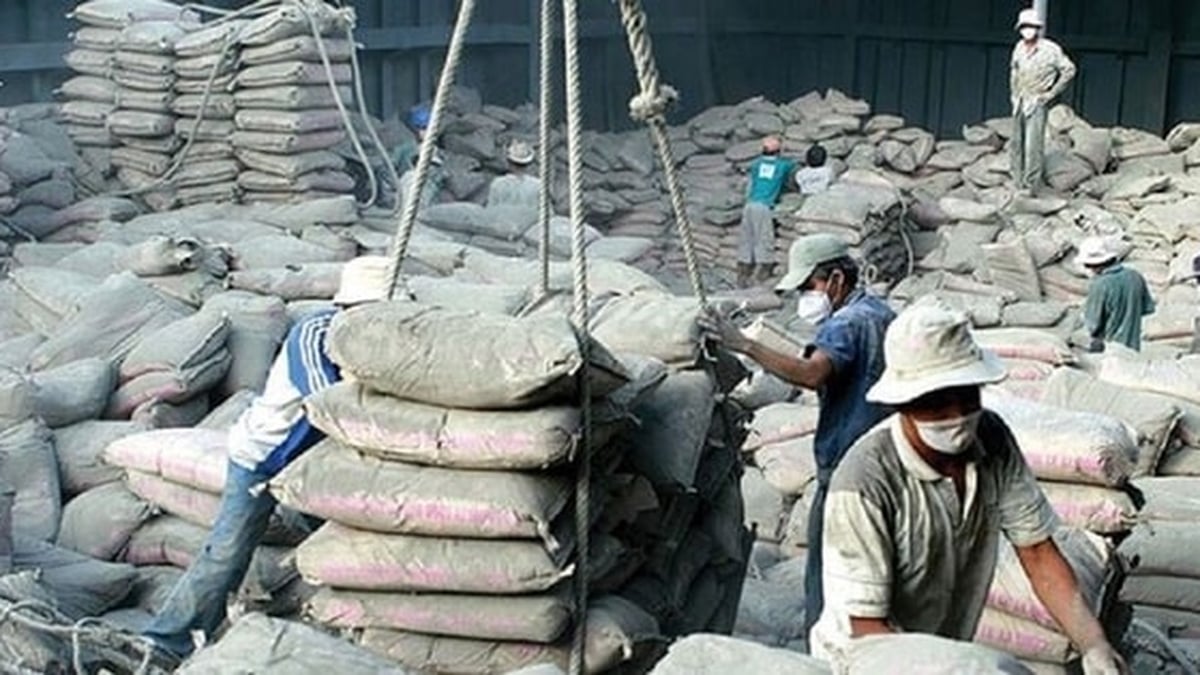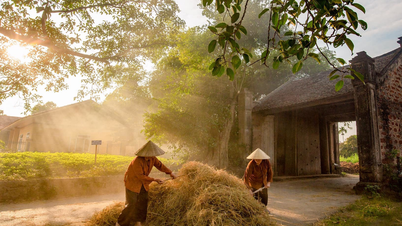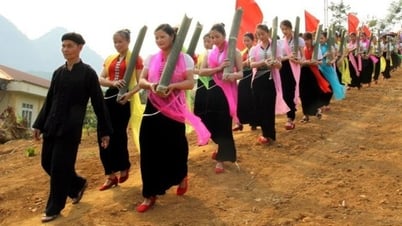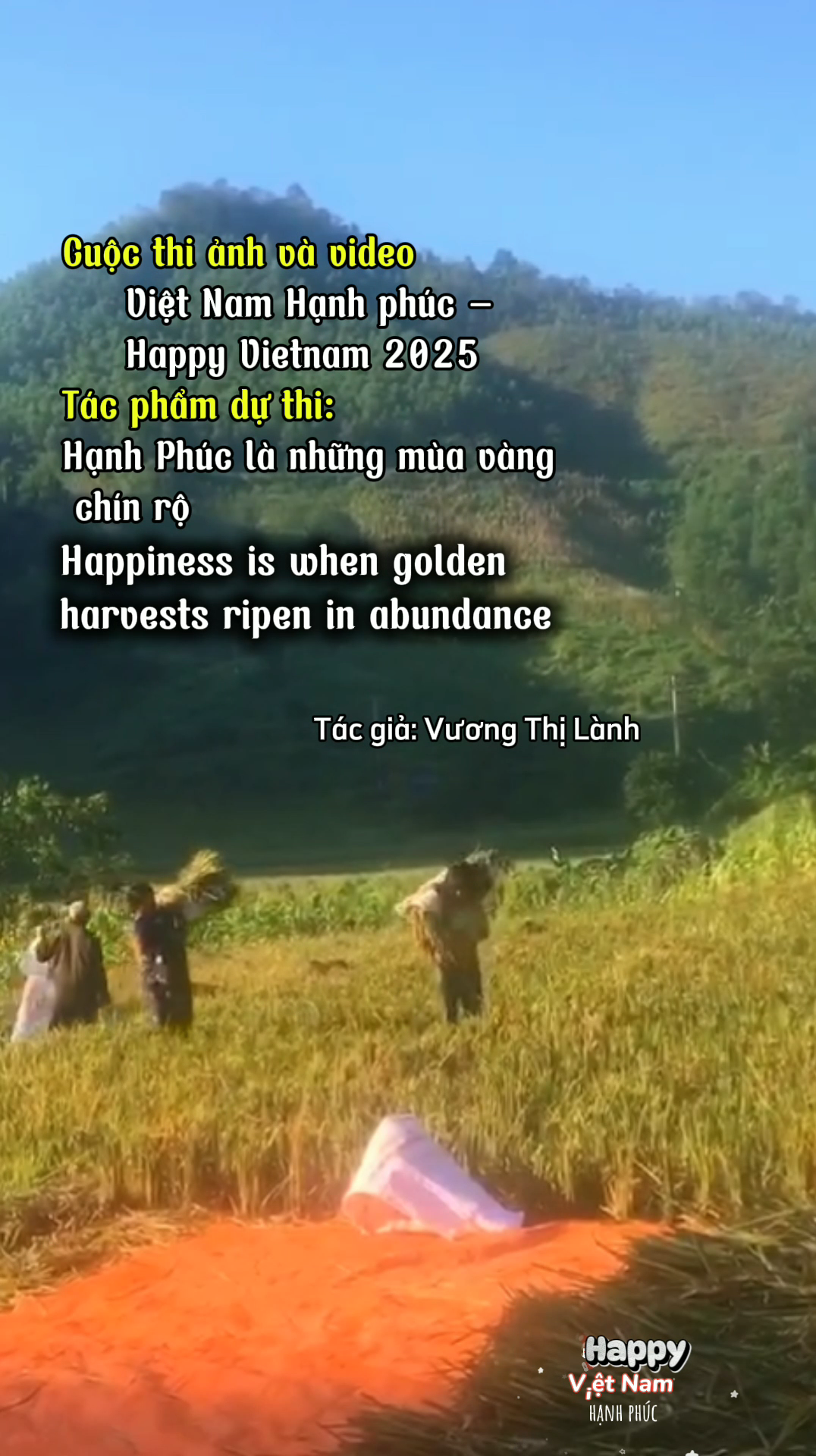Commenting on the above folk song, the program advisor, PhD University analyzed:
“Here there is a culture of behavior through two very good sentences of yours, which are: “The sky is sometimes sunny, sometimes rainy/ The day is sometimes morning, sometimes noon, and people are also.”
Of course, people should not change. If you say it in advance, you have to do it later. But through that, I see that I have to be more generous with people. Because when people do things against me, it is not a bad thing, but it is forced by circumstances. Of course, I have to endure a little pain, admit it. But I should endure a little, see it as normal, try to get over it and, as Buddhism says, let go.
However, in our opinion, the advisor did not understand the folk meaning correctly.
Folklore uses the laws of "sometimes sunny, sometimes rainy", "sometimes morning, sometimes noon" of heaven and earth to compare. This implies that all things operate according to natural laws, sometimes prosperous, sometimes declining, sometimes this way, sometimes that way. Humans are not outside of that law, so they also have times of health, sometimes illness; times of glory, sometimes humiliation; times of joy and openness, sometimes anger and bad temper. So, even heaven and earth change, let alone humans. Therefore, each individual as well as those around them should see the changes, or the erratic temperament of each person as normal, should not be sad, disappointed, angry, or critical.
The comparison in the folk song is similar to the saying "Stones still sweat" (variant "Stones still sweat sometimes"), meaning that something as durable and seemingly inanimate as stones can still get tired at times, let alone humans, who are sometimes sick and in pain, which is normal.
In short, folklore does not imply that "people do things against you", or that life is unpredictable, that words are not kept, or that "what you say in the past must be done in the future", as the advisor understood.
Hoang Trinh Son (Contributor)
Reference: The folk song "The sky is sometimes sunny, sometimes rainy/ The day is sometimes morning, sometimes noon" is collected in the books "Proverbs and Folk Songs" (compiled by On Nhu Nguyen Van Ngoc - Vinh Hung Long Publishing House 1928); "Vietnamese Folk Poetry" (compiled by Nguyen Tan Long - Phan Canh - Saigon, Song Moi Publishing House - 1970). The book "Dictionary of Vietnamese Idioms, Proverbs and Folk Songs" (Viet Chuong - Dong Nai Publishing House 1998) explains: "The weather usually changes according to the seasons, and sometimes it also changes suddenly. Sometimes the sun is shining brightly, suddenly it rains heavily. Many times it is raining, suddenly the sun shines through the treetops. People are the same, sometimes this way, sometimes that way: sometimes healthy, sometimes sick, it is impossible to predict. Therefore, people who know how to plan ahead will try to work hard when they are healthy to accumulate wealth in case they are sick and have to stay in one place to have something to eat."
Regarding the literal interpretation, we agree with Viet Chuong. However, in terms of the figurative meaning, in our opinion, folklore does not aim to advise “those who know how to plan ahead should, when they are healthy, work hard to accumulate wealth in case they are sick and have to stay in one place to have something to eat”, in the style of “Stock up food to prevent poverty, stock up on clothes to prevent cold”, but has the meaning as we have given in the article.
Source: https://baothanhhoa.vn/troi-con-khi-nang-nbsp-khi-mua-250779.htm





























![[Photo] National Assembly Chairman attends the seminar "Building and operating an international financial center and recommendations for Vietnam"](https://vphoto.vietnam.vn/thumb/1200x675/vietnam/resource/IMAGE/2025/7/28/76393436936e457db31ec84433289f72)







































































Comment (0)